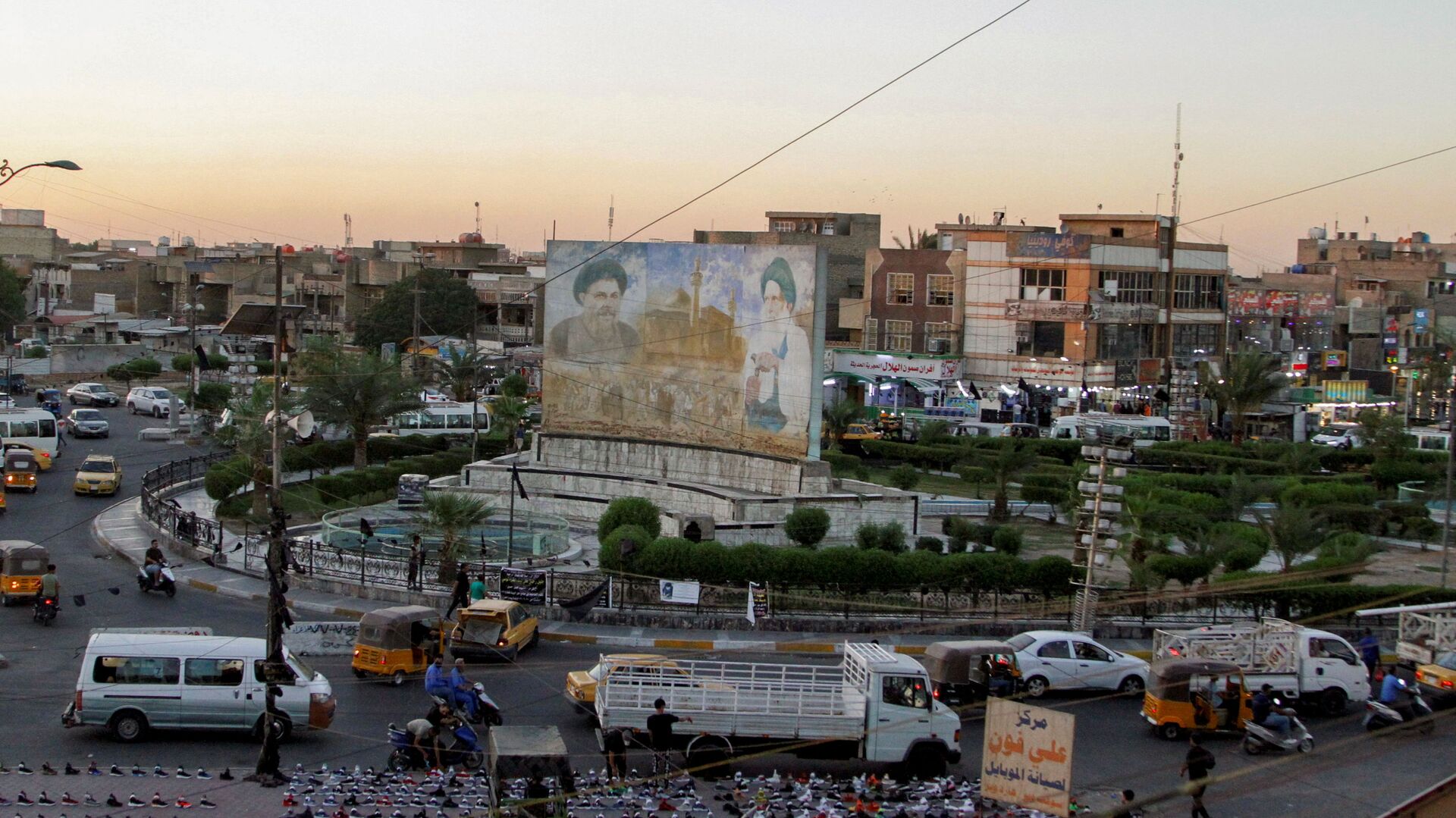As Iraq Preps for Parliamentary Elections, Expert Says the Vote Is 'Unlikely' to Heal the Country
05:51 GMT 06.10.2021 (Updated: 10:57 GMT 11.03.2024)

© REUTERS / AHMED SAAD
Subscribe
Unemployment is still high in the war-torn country; in 2020 it reached almost 14 percent. Poverty rates are soaring too, with nearly 25 percent living in dire conditions, whereas security continues to be an issue.
On Sunday, Iraqis will take to the polls for the fifth time since the American invasion in 2003 to elect parliamentarians, who will occupy 329 seats in the national legislature.
Apathy on the Rise
But Feisal Amin Al Istrabadi, a former Iraqi diplomat and an expert on the Arab nation's affairs, says he doesn't expect a high turnout in the war-stricken country.
"The turnout will be low, just as it was the case in other rounds of elections," he says.
The reason for this seeming apathy, says Al Istrabadi, is that nothing has really changed in Iraq since the mass protests of 2019 that erupted over rampant corruption, a lack of basic services and allegations that the elites had used their power to keep enriching themselves.
Unemployment has continued to climb, reaching almost 14 percent in 2020. The poverty rate is still high and stands at almost 25 percent, whereas oil revenues that had shrunk significantly in the past several years have impacted the government's ability to provide services or pay salaries, something that only adds to the already fragile situation.
"People look at the country and they see no prospects. No jobs. No future. They see the inability of the government to pay the bills and they understand that the faces of Iraqi politicians may have changed over the years but the core issues that have been bothering the Iraqis remained the same, and there is nobody, who can tackle them."
Security is an Issue
However, the upcoming elections will not only be about the economy. They will be about security too.
Daesh* that at the peak of its strength controlled a third of Iraq, continues to pose a threat to the state. In September, at least 15 Iraqi policemen were killed in Kirkuk province in the north, and the belief is that the terrorist organisation is still active in many parts of the country.
Iranian militias are a headache too. They have been blamed for attacking Iraqi security forces and staging assaults on Western targets. They have been accused of killing protesters, who took to the streets in October 2019 demanding reforms and a change to the current political system, and they have been slammed for constantly interfering in Iraq's internal affairs and for using federal funds to promote their goals.
"This situation of Iraq being under the control of Iran is an unnatural one and it is not what ordinary Iraqis want. The Shiites of Iraq died for this country between 1980 to 1988. They are fine with having touristic, religious or cultural ties with Iran but they don't want to see Tehran interfering in their internal affairs," said the expert, adding that the situation is unlikely to change in the foreseeable future.
While it is still unclear who will be the winners and losers in the upcoming race, Al Istrabadi is certain that the current Prime Minister Mustafa Al Kadhimi will remain in his seat, and what this ultimately means is that the ties Iraq currently has with Iran will be maintained.
"Al Kadhimi realised that his state was not that strong and that it could not expel Iran from Iraq. [This is the reason] why he has also gotten closer to the US, hoping that Washington would help Baghdad to get rid of the Iranian influence," said the expert.
Americans to the Rescue?
The only question is whether the Joe Biden administration will be willing to offer that help.
In July, Washington announced that it would pull out from the war-torn country by the end of the year. Experts have already warned that such a move would leave a vacuum that could easily be filled by extremists or Iran. But Al Istrabadi says that Al Kadhimi is unlikely to repeat the mistakes of Barack Obama, who withdrew forces in 2011 and subsequently paved the way for the seizure of Daesh.
"Of course, the US has a bigger fish to fry right now," said the expert, referring to China.
"Yet, their full withdrawal, if it does happen, will threaten Washington's regional allies like Israel and the Gulf and I doubt this is in the strategic interests of the US."
This is why, believes Al Istrabadi, the current status quo is likely to stay in place. The US will recognise the Iranian influence in Iraq, Syria and Lebanon. It will turn a blind eye to its deeds in the region. And if this is the case, a "change is not possible", says the expert, "unless something dramatic happens".
*Daesh (ISIS/ISIL/IS) - a terrorist organisation banned in Russia and many other countries


